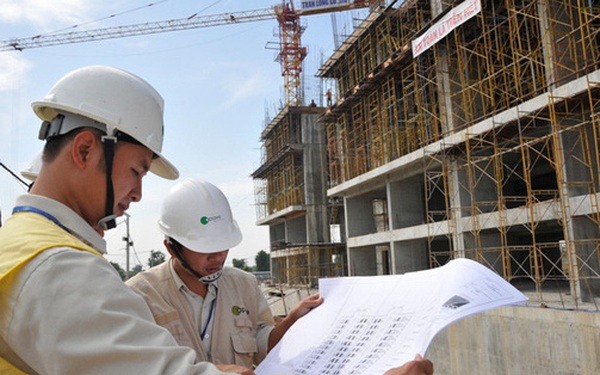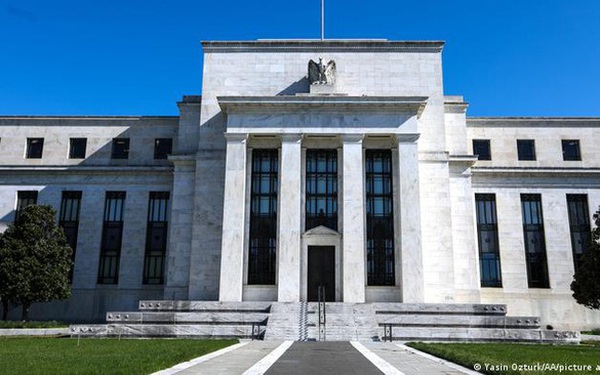The whole village of PHAT TAI after 1 night, whoever owns this “money printing machine” will be tired of counting silver
In the mountains of southern China’s Yunnan province, the Bo Lang ethnic minority people often tell the story of the village elder Pa Ai Leng, who aspired to bring prosperity to his tribe.
According to the stories told, he initially considered leaving the horses and oxen to the tribe, but feared they would die if an epidemic broke out. Then he thought of gold and silver, but was afraid that people would waste it. In the end, he left people with tea trees, which are an inexhaustible source of wealth for generations to come.
Although the origin of this legend is difficult to trace, part of it is true. Since 2000, Pu-erh tea, which is derived from the large-leaf tea trees of the region, has become the most valuable and sought-after commodity in China.
A pound of Pu-erh tea harvested from a hundred-year-old tea tree can bring in between 1,000 and 2 million yuan (equivalent to about $157 to $313 thousand).
The skyrocketing price of Pu’er tea not only brought new wealth to this impoverished border region, but also profoundly changed the social life of the Bo Lang communities.
“When the price of tea in the village increased from less than 15 yuan/kg in 2003 to 100 yuan/kg in 2005, I thought it was already very high,” said Mr. Xiang, 50. “For the first time in my life, I feel rich. That year, I bought three motorbikes for my children, even the youngest daughter could not even ride a bike.
Many villages in Yunnan, China have changed markedly thanks to the ancient Pu-erh tea. Previously, the mountainous terrain and dangerous roads made their lives full of hardship, sometimes being completely isolated from the outside because of landslides. However, at the present time, this is a gift of luck.
During the 1950-1980 period, many places followed the policy of production modernization, so they cut down old trees to make new plantations. Many regions cut down the Pu-erh tea tree to replace it with new, higher-yielding tea varieties.
Particularly, Manban village only cleared new land to make tea and abandoned the old cultivation area, but did not cut down trees. The hundred-year-old ancient tea trees are still preserved. The tea leaves harvested from here are sold for less than 1 yuan/kg.
“At that time, tea companies preferred yellow juice, leaves and small buds. Our tea was considered the worst of the poor,” said 80-year-old Bu, from Manban village.
Everything changed when the “pu-erh tea bubble” burst in 2007. At that time, a number of small and medium-sized companies were advertising and marketing ancient tea, creating a wave of “hunting” in the market. school.
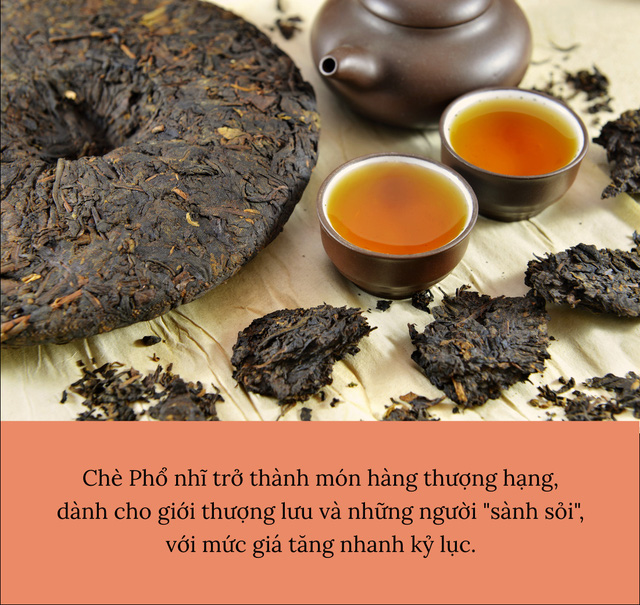
Very quickly, the ancient Pu-erh tea from a worthless commodity suddenly became the choice for “connoisseurs”, merchants, the middle class and above. They praised the taste, considered it as a legacy, godsend and tribute only the old kings could drink.
The price of Pu-erh tea harvested from ancient tea trees in Manban Village tripled between 2005 and 2007. By 2014, it was trading for 10 times its 2005 value.
Meanwhile, the village’s average annual household income has increased from less than 2,000 yuan in 2000 to 100,000 yuan in 2019. This is nearly 10 times the average income of rural Yunnan. .
In 2021, the price of a kilogram of old Pu-erh tea is nearly 5 times higher than the price of new varieties of Pu-erh. Those who have given up the ancient tea tree are regretful.
Mr. Bing, a local resident in his thirties, shared: “In the past, because he thought that ancient tea was worthless, when dividing the property from my grandfather, my father left all the tea trees to him. uncle’s family. Now, for each Spring crop, my uncle can easily earn 100,000 yuan, while I can hardly earn half of it in an entire year.”
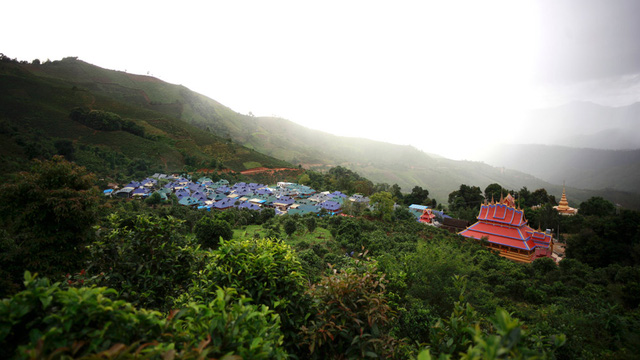
A view of Manban Village, Yunnan Province, 2015. Photo: Sixthtone
The exploding price of ancient Pu-erh tea also makes another group of people regret, that is, the families who have relocated and resettled. In 2003, half of the registered Manban villagers moved to the newly built village at the foot of the mountain. Here, they have better transport connections and access to the outside world. Some families who refused to relocate and moved were considered “stubborn and conservative”.
However, after a few years, times have changed. The unit price of tea harvested in the old village is 12 times higher than that of the tea harvested in the new village. Many families in the new village now have to go to the mountains to work, pick and roast tea for the people in the old village.
“Before 2007, there was no girl in our village who wanted to marry the young men who lived in the old village. But now everyone has to compete to become their hired labor,” said Ban, a young man whose family moved to a new village.
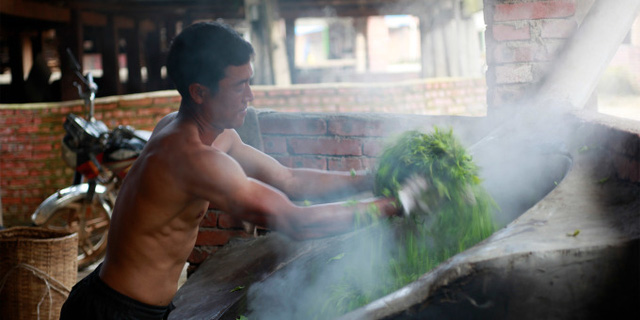
The people of Manban village star tea. Photo: Sixthtone
However, even the winners are not immune to anxiety. As the value of Pu’er increased, most households in the area stopped growing agricultural products. With so much wealth concentrated in a single category, they are also susceptible to sudden market changes.
*According to 6thtone
at Blogtuan.info – Source: cafebiz.vn – Read the original article here
